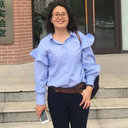Body mass index and age are additional prognostic factors in patients with metastatic renal cell carcinoma treated with tyrosine kinase inhibitors.
کلید واژه ها
خلاصه
Tyrosine kinase inhibitors (TKIs) are the preferred treatment drugs for metastatic renal cell carcinoma (mRCC). The aim of this study was to analyze prognostic factors for overall survival (OS) in patients with mRCC treated with TKIs.
Clinical data on 155 patients enrolled in 5 clinical trials conducted at our hospital from 2006 to 2014 were reviewed retrospectively. All patients received first-line TKI therapy (sunitinib, sorafenib, pazopanib, or famitinib). Survival rates were determined by the Kaplan-Meier method.
Median OS (mOS) was 36.2 months. A total of 4 of the 5 adverse prognostic factors identified by the Memorial Sloan-Kettering Cancer Center (MSKCC) were found to be independent predictors of shorter survival, anemia, hypercalcemia, lactate dehydrogenase>1.5×upper limit of normal, and diagnosis to treatment time<1 year. In addition, we found that age≤45 years (P = 0.002), low or high body mass index ([BMI]<19 or>30kg/m(2)) (P = 0.003), and presence of≥3 metastatic sites (P = 0.000) were also independent adverse prognostic factors. According to the MSKCC model, the mOS time in the favorable-risk, intermediate-risk, and poor-risk groups were 46.6, 30.4 and 16.7 months, respectively (P = 0.005). When we integrated age and BMI into the MSKCC model to set up a 7-factor prognostic model, we found the mOS time for these 3 groups was 71.1, 41.6 and 15.3 months, respectively (P = 0.000).
Age and BMI are additional independent prognostic factors for patients with mRCC receiving vascular endothelial growth factor receptor-targeted TKI treatment, and the MSKCC prognostic model is also applicable to them. A 7-factor prognostic model might help to identify patients with the best prognosis. Further studies are needed to confirm these findings.




